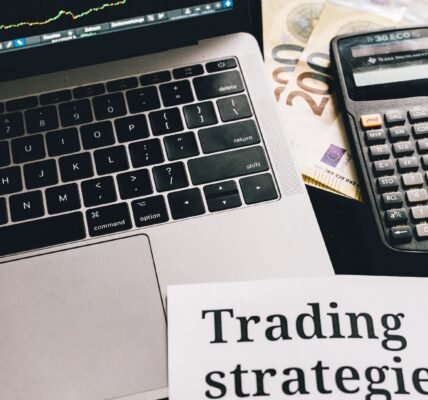The stock market never operates in a vacuum. Global events, especially geopolitical ones, can significantly sway market trends. From wars to political upheavals, understanding how geopolitical events impact stock markets can help investors make informed decisions.
In this blog, we’ll explore the relationship between geopolitical events and stock markets. We’ll look at historical examples to see how events shaped market movements. Let’s dive in!
What Are Geopolitical Events?
Geopolitical events refer to significant global incidents that impact countries and economies. These include wars, elections, trade disputes, and policy changes. The stock market often reacts to such events, leading to volatility.
Why Do Geopolitical Events Matter?
Geopolitical events create uncertainty. Investors prefer stability, so anything that threatens it can lead to panic selling. However, not all events have the same impact. Some might only cause short-term fluctuations, while others can trigger long-term trends.
How Geopolitical Events Impact Stock Markets
The stock market reacts to news and events almost instantly. Let’s break down how geopolitical events impact stock markets.
1. Market Volatility
Uncertainty leads to volatility. When investors face uncertainty, they often react by selling off stocks. This panic can cause sharp declines. For example, during the Gulf War in 1990, stock markets experienced a steep drop. However, once the situation stabilized, markets recovered.
2. Flight to Safety
During geopolitical tensions, investors often move their money to safer assets. This is known as a “flight to safety.” Safe-haven assets like gold, U.S. Treasury bonds, and the Swiss franc often gain value. For instance, during the 2008 financial crisis, gold prices surged as investors sought security.
3. Impact on Global Trade
Geopolitical events can affect global trade, which in turn impacts stock markets. Trade wars, like the one between the U.S. and China, led to fluctuations in stock prices. Tariffs and trade barriers hurt companies that rely on international markets, causing their stock prices to drop.
4. Currency Fluctuations
Geopolitical events can lead to changes in currency values. For example, Brexit caused the British pound to plummet. A weaker currency can benefit exporters but hurt importers, leading to mixed reactions in the stock market.
Historical Examples of Geopolitical Events and Their Impact on Stock Markets
To better understand how geopolitical events impact stock markets, let’s look at some historical examples.
1. The Cuban Missile Crisis (1962)
The Cuban Missile Crisis brought the world to the brink of nuclear war. The stock market reacted with extreme fear. During the crisis, the Dow Jones Industrial Average (DJIA) dropped sharply. However, once the crisis was averted, the market rebounded.
- Impact: Short-term drop followed by recovery.
- Key Takeaway: Markets often recover after the initial shock of geopolitical events.
2. The 9/11 Terrorist Attacks (2001)
The 9/11 attacks had a massive impact on the U.S. stock market. Trading was halted for several days. When the market reopened, the DJIA fell by over 600 points, the biggest one-day point drop at that time.
- Impact: Immediate and severe decline.
- Key Takeaway: Terrorist attacks cause panic selling but markets can recover over time.
3. Brexit Referendum (2016)
The unexpected result of the Brexit referendum caused the British pound to drop to a 30-year low. Stock markets worldwide felt the impact, especially in Europe. However, over time, markets adjusted to the new reality.
- Impact: Currency volatility and stock market decline.
- Key Takeaway: Political events can lead to long-term market adjustments.
4. U.S.-China Trade War (2018-2020)
The trade war between the U.S. and China led to significant volatility in global stock markets. The imposition of tariffs hurt companies dependent on international supply chains. However, certain sectors like technology and agriculture saw mixed results.
- Impact: Fluctuating stock prices based on trade negotiations.
- Key Takeaway: Trade disputes create uncertainty but also present opportunities in certain sectors.
How to Protect Your Investments During Geopolitical Events
Knowing how geopolitical events impact stock markets can help you safeguard your investments. Here are some strategies to consider:
1. Diversify Your Portfolio
Diversification reduces risk. By investing in different sectors and asset classes, you can protect your portfolio from geopolitical shocks. For example, adding safe-haven assets like gold can balance out losses in the stock market.
2. Focus on Defensive Stocks
Defensive stocks tend to perform well during uncertain times. These include sectors like utilities, healthcare, and consumer staples. Companies in these sectors usually provide essential goods and services, making them more stable during crises.
3. Stay Informed
Keeping up with global news can help you anticipate market movements. Follow reputable financial news sources and set up alerts for significant geopolitical events. By staying informed, you can react quickly to protect your investments.
4. Consider Stop-Loss Orders
A stop-loss order helps you minimize losses. By setting a price point at which your stocks will automatically sell, you can protect yourself from sudden market drops. This strategy can be especially useful during volatile times.
Geopolitical Trends to Watch in 2024
As we move into 2024, several geopolitical trends could impact stock markets. Investors should keep an eye on these developments:
1. U.S. Presidential Elections
Presidential elections often lead to stock market volatility. Investors react to potential changes in policies. Depending on the outcome, certain sectors could benefit while others might suffer.
2. Tensions in the Middle East
The Middle East remains a hotspot for geopolitical tensions. Conflicts in the region can impact oil prices, which in turn affect global markets. Investors should watch for developments that could disrupt supply chains.
3. China’s Economic Policies
China’s economic policies have a global impact. Changes in regulations or trade policies can affect multinational companies. The stock market may react to shifts in China’s economic strategy.
Pro Tip
Consider geopolitical risks when planning long-term investments. Diversifying your portfolio can help mitigate these risks.
Conclusion: Navigating the Impact of Geopolitical Events
Understanding how geopolitical events impact stock markets can give you an edge in investing. While these events can cause short-term volatility, they also present opportunities. By staying informed, diversifying your portfolio, and using smart strategies, you can navigate the challenges and seize opportunities.
Geopolitical events will always play a role in the stock market. As an investor, it’s crucial to stay prepared and adapt to changing conditions. With the right approach, you can turn market uncertainties into profitable investments.
Key Takeaway
Geopolitical events are a part of investing. By understanding their impact, you can make informed decisions and protect your portfolio.





